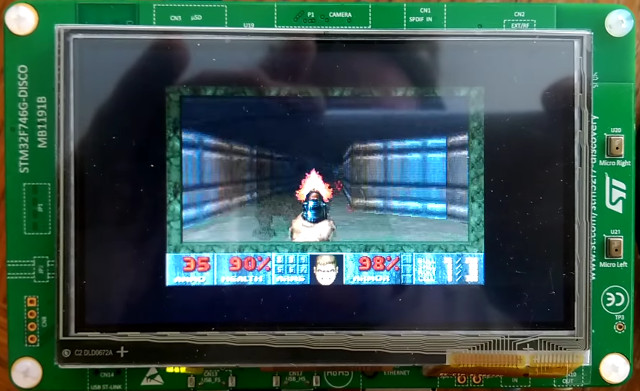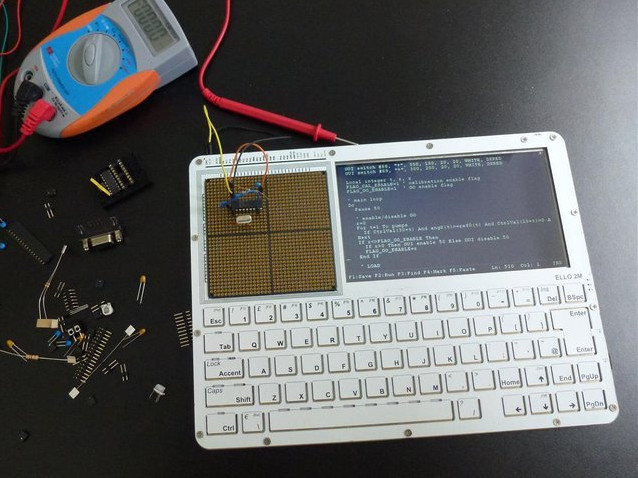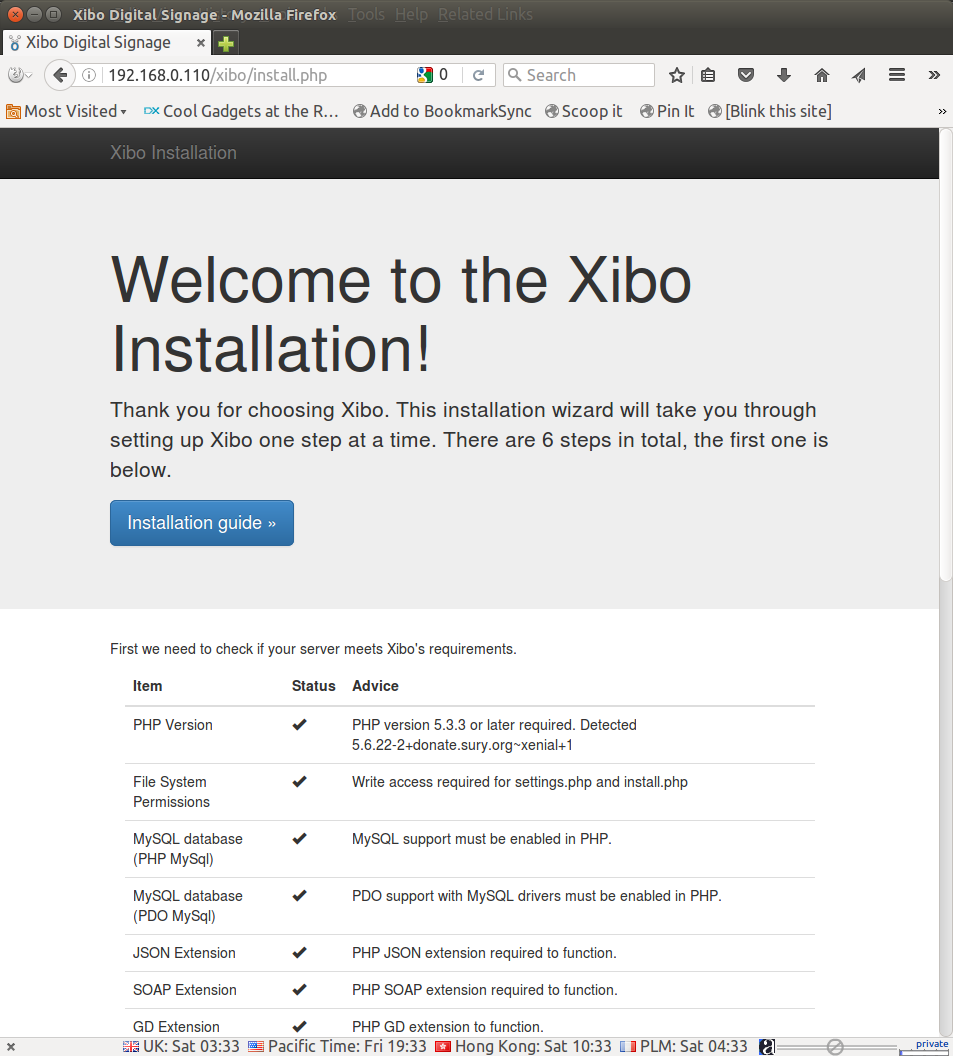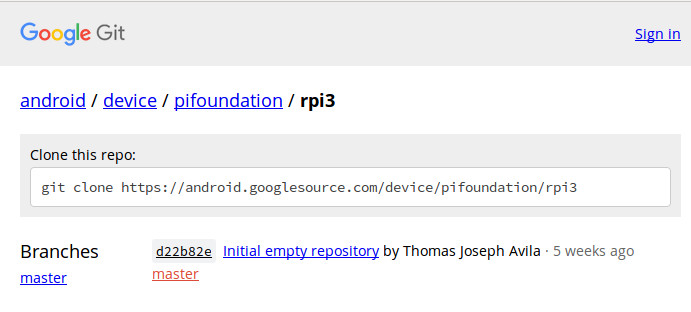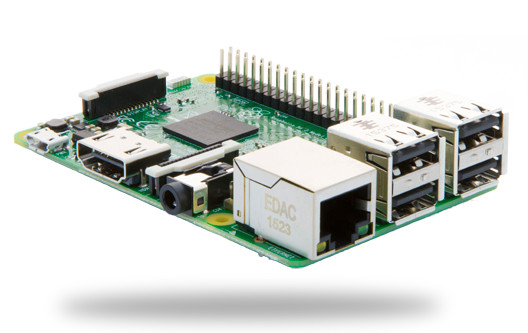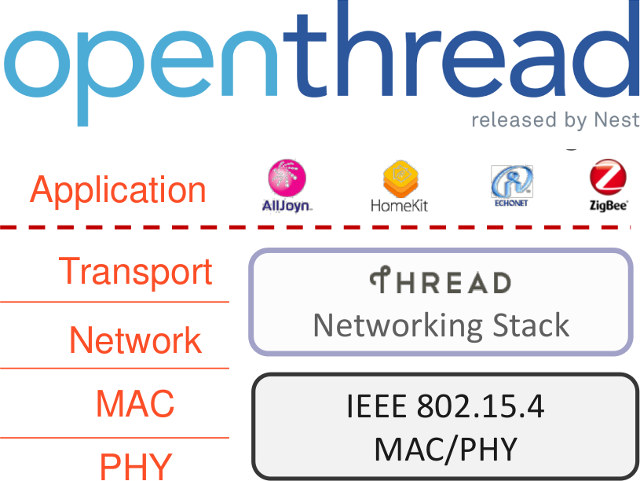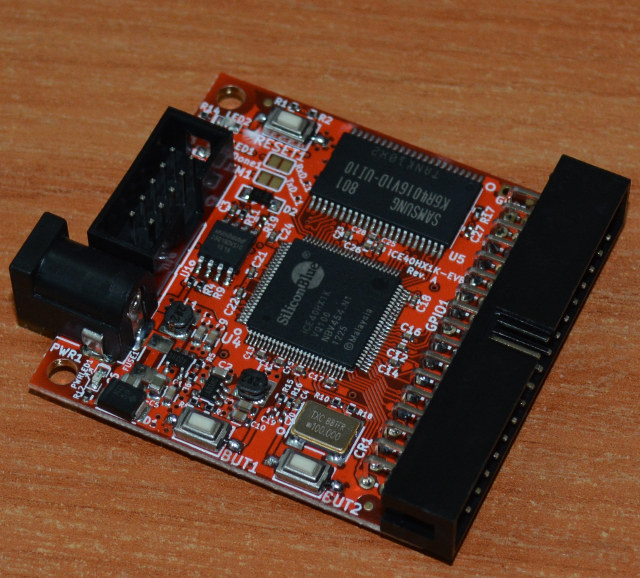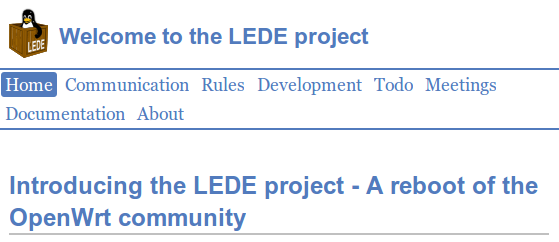Frosted, which stands for “Free Operating Systems for Tiny Embedded Devices”, is an OS with a POSIX-compliant system call API, borrowing the Linux kernel kconfig for configuration, and currently supporting ARM Cortex M0,M3,M4, and M7 MCU including Texas Instruments Stellaris LM3S, STMicro STM32F4/F7, and NXP LPC17XX micro-controllers. The developers are focusing on IoT applications, as well as porting retro-games such as Doom. The kernel relies on libopencm3 for hardware abstraction, and the operating system can be built with GCC ARM for Frosted using the source code released under a GNU GPLv2 license. The Wiki explains how to build and run the OS on either Qemu (in a Linux computer) used LM3S target, or an STM32F4 Cortex -M4 or STM32F7 Cortex-M7 board. The team also uploaded showing a video of Doom (fdoom) running on STM32F7 board, and possibly adapted from stm32doom port. If you are interested in joining the project you can […]
ELLO 2M is a DIY Computer with a Keyboard, a 7″ Touchscreen Display and a Prototyping Area (Crowdfunding)
The traditional way to play with electronics is to get a board (e.g. Arduino), a breadboard to wire components & sensors to the board, and a computer for programming. ELLO 2M combines all that into a single piece of hardware with a 7″ touchscreen display, a Microchip PIC32 micro-controller board, a solderless prototyping area made of PGA sockets, and a keyboard. ELLO 2M hardware specifications: MCU – Microchip PIC32MX470 32-bit micro-controller @ 120 MHz with 128kB RAM (512kB RAM in the ELLO 2M “hacker” versions) Extra System Memory – Optional on-board serial non-volatile data RAM Storage – 3x micro-SD cards (one permanently built-in and two for removable storage); internal serial FRAM Display – 7″ LCD touch-screen panel with 800×480 pixel resolution Audio – Small speaker and buzzer Keyboard – Replaceable QWERTY keyboard Connectivity – 2.4GHz RF communication module with simple communication protocol Expansion – Expansion receptacle, electronic prototyping space with […]
How to Install PHP 5.6 (and Xibo Digital Signage CMS) in Ubuntu 16.04
Xibo is an open source digital signage using a client / server architecture, and in the past I wrote a tutorial showing how to use it, and ran Xibo Python client on ARM Linux TV box, but with software handling only so rendering scrolling text was not very smooth at all, and video decoding was not really possible. But now I have Star Cloud PCG02U Intel TV stick which costs just $70 shipped with Ubuntu 14.04, and that I have upgraded to Ubuntu 16.04, and I thought that would be a great low cost Xibo Linux client which should have pretty good performance. I started by installing Xibo server, only to find out that the cross-platform Python client had been phased out, with now only Windows and Android clients available. So I canceled my plan. I still had some challenges installing Xibo server on Ubuntu 16.04, so I’ll report my […]
Raspberry Pi 3 Repository Has Been Added to Android Open Source Project
Android has been ported to the Raspberry Pi boards in the past, but the images were not really usable because the implementation lacked 2D & 3D graphics support. The good news is that Raspberry Pi 3 is likely to officially support the latest version of Android soon, because rpi3 repository has been created in AOSP about 5 weeks ago. That’s all we know for now. Raspberry Pi 3 could then be part of the second wave of boards officially supported in Android “mainline”, as currently 96Boards Hikey is the only supported board in AOSP. However, If we go down in the git repo to android/device, we can also see MIPS Creator CI40, Aaeon Upboard, i.mx6ul picoimx board, Intel Edison and Minnowboard, and a few others. Some of the boards will run Brillo instead of Android however, or it could be a different project, so we’ll have to see what happens […]
Preliminary Open Source Bootloader for Raspberry Pi Boards Released
Raspberry Pi boards require a closed-source binary to boot. I understand it this is handled by VideoCore IV GPU, and so far the Raspberry Pi foundation are not release source code for the bootloader, possibly due to legal reason (e.g. NDA to Broadcom). But I noticed people chatting about an open source bootloader for Raspberry Pi on sunxi-linux IRC channel. The bootloaded called rpi-open-firmware has been developed by Kristina Brooks (christinaa), who previously did some work on the VideoCore IV GPU, as you can see on her blog and github account. Kristina describe the project as follows: This is a small firmware for RPi VPU (VideoCore4) versions 1/2/3 that is capable of initializing VPU PLL (PLLC), UART, SDRAM and ARM itself. It’s intended to be used instead of stock bootcode.bin on RPi’s SD card. You need to have UART to see anything meaningful as far as output goes. This has […]
OpenThread is an Open Source Implementation of Thread IoT Networking Protocol
Thread was announced about two years ago, as a new IP-based wireless protocol based on 6LoWPAN and 802.15.4 standards and targeting IoT applications. Nest Labs, an Alphabet company, has now released OpenThread open-source implementation of the networking protocol under a BSD license. The source code (C++) for OpenThread includes supports for End Device, Router, Leader & Border Router roles, and can be found on Github. The implementation is said to be OS and platform agnostic with a radio abstraction layer, have a small footprint, and implement all Thread networking layers, namely IPv6, 6LoWPAN, IEEE 802.15.4 with MAC security, Mesh Link Establishment, and Mesh Routing. To quickly get started, you may want to read the Examples README which explains how to build the code, start two nodes, and ping them. Interestingly, while the code is there for everybody to use, only paid members ($2,500 to $100,00) of the Thread group can […]
Olimex iCE40HX1K-EVB Open Source Hardware Lattice FPGA Development Board To Sell for 22 Euros
Olimex has showcased a prototype of their small (5×5 cm) iCE40HX1K-EVB development board powered by Lattice Semi iCE40 FPGA, programmable with OLinuXino development boards via the UEXT interface, and compatible with Project Icestorm open source toolchain for Lattice iCE40. iCE40HX1K-EVB specifications: FPGA – Lattice Semi iCE40HX1K-VQ100 FPGA @ up to 533 MHz with 1280 gates, 160 Logic Array Blocks, and 64 kbit memory System Memory – 256Kx16 SRAM (Samsung K6R4016V1D-TC10 ) Storage – 2MB serial flash Expansion UEXT connector for programming 34-pin header to access FPGA I/Os Misc – 2x user buttons, reset button, 2x user LEDs Power Supply – 5V via power jack Dimensions – 5×5 cm (4-layer PCB) The company has also made four stackable add-on boards to connect to the 34-pin expansion header: iCE40-ADC fast 100Mhz ADC with BNC input connector for Digital Storage Oscilloscope (DSO) with up to 512 KB buffer iCE40-DAC fast 100Mhz DAC with […]
LEDE (Linux Embedded Development Environment) Project is a Fork of OpenWrt
2016 appears to be the year of splits in open source communities with Kodi losing its main Android developer, LibreELEC being born out of disagreements within OpenELEC community, and now LEDE project, a fork of OpenWrt, has been created because some people are not satisfied with the way the project is managed, and now “includes a significant share of the most active members of the OpenWrt community”. LEDE, which stands for “Linux Embedded Development Environment” , has three stated goals: Building a great embedded Linux distribution with focus on stability and functionality. Having regular, predictable release cycles coupled with community provided device testing feedback. Establishing transparent decision processes with broad community participation and public meetings. You can find more on LEDE Project website, and the source code is available on the project’s git server:
|
1 |
git clone http://git.lede-project.org/source.git |
Thanks to Zoobab for the tip. Jean-Luc Aufranc (CNXSoft)Jean-Luc started CNX Software in 2010 as […]


